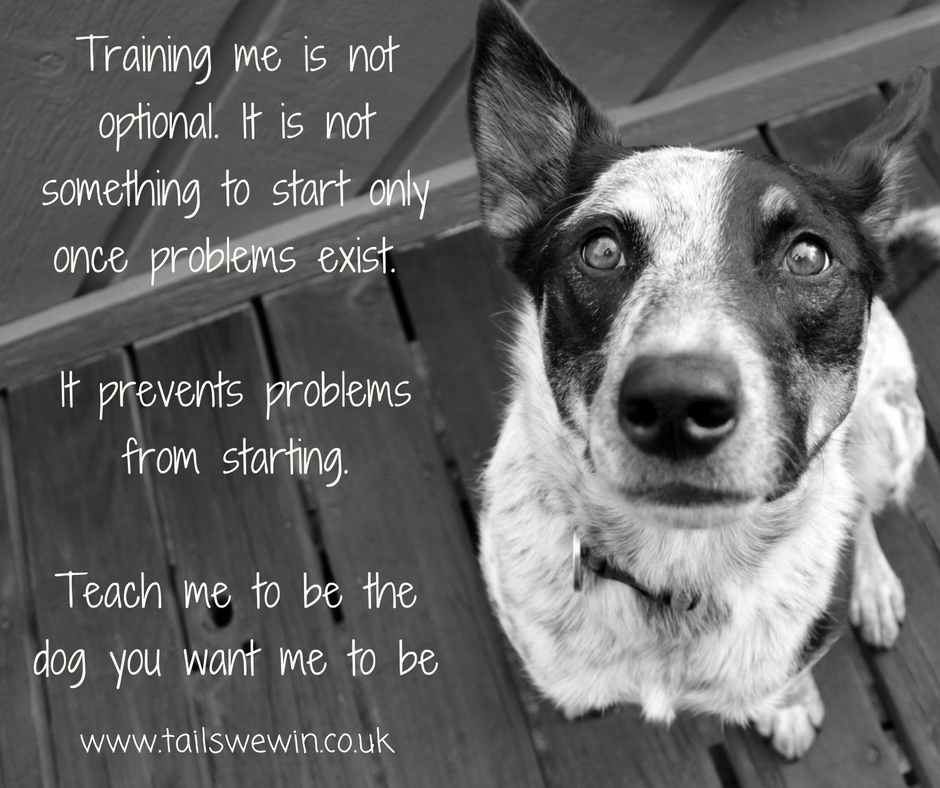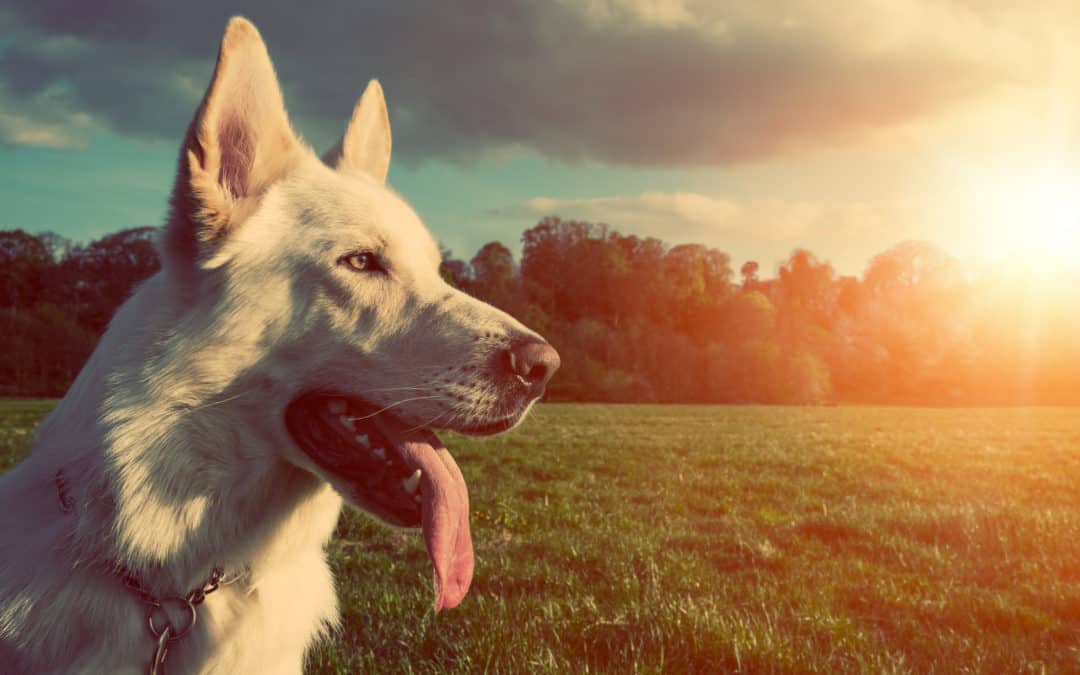Training is something we should do with our dogs. Actually I’d rather we didn’t call it ‘training’ because that kind of implies it is short lived and something the learner has to undergo.
Animals, us, our dogs, horses, lizards, whatever, are built to behave. They have developed to interact with their environment, to act on it to get what they want and need.
That’s all behaviour is really – acting on the environment in order to access reinforcers, or avoid shittiness.
Animals deserve the best care we can possibly provide. Training should not be considered a luxury that is only provided if there is time; it is an essential part of good animal care. Just as one would never consider developing an animal care program without a veterinary component, a nutritional component, a social component, and an environmental component, nobody should consider caring for an animal without a behavioral management component integrated into the program
Ken Ramirez – From the introduction to “Animal Training: Successful Animal Management through Positive Reinforcement.”
I often have clients tell me that they don’t want a well trained dog they just want a well behaved one.
Well I’m sorry to break it to you but they are the same damn thing.
You may have zero need for a dog that can complete an agility course at 100mph, or to find a missing person, or one that can do that flashy competition obedience heelwork.
But you probably would like your dog to settle when you want him to, come back when you call, walk on lead without pulling your shoulder out of alignment.
You may have other things you’d like for your dog to do, not rush out the door when it opens, travel quietly in the car, get off the furniture when you ask, not get on the furniture in the first place, leave your food or drinks alone when you leave them on the side, bring you your pipe and slippers when you get home……
It doesn’t really matter what your household rules are for your dog. Everyone has different wants and needs from their dog’s behaviour. What I can tolerate or even find endearing from my dogs will be different to someone else. What I prioritise is different for each dog I live with because it depends on their own traits and preferences.

The thing is that our dogs don’t come knowing what your rules are. Some dogs sort of figure it out, and if they don’t seem to engage in things we find particularly annoying we kind of rub along together without much issue. But don’t think they aren’t learning and you aren’t training just because you’re doing it without intention.
Your dog is learning 24-7.
He is learning what pays off, what doesn’t. When you’re likely to get pissed off, when you’re likely to feed him from your plate, or play with him, or take him for a walk, or come back from work.
To be fair to your dog you owe it to him to spend the time to teach him what you’d like him to do, so he can navigate his environment with confidence because he knows what pays off when.
And if your dog is engaging in behaviours you really don’t like, you definitely owe it to him to help him figure out a different way of behaving so you can both be happy. Particularly if the behaviour comes about because your dog finds a situation difficult – he isn’t being naughty, he’s struggling to cope and your job as his person is to help him through it.
Now this is where typically I’d do a bit of a sales pitch and tell you all about the services I provide to help you with all this.
But you know all that already right?
There’s lots of ways you might choose to get help if you need it.
You have the choice.
What you don’t have a choice about is doing the training.
Your dog is going to learn something whatever you do, make sure it’s what you want him to learn.


Brilliant article. Training is for life not just for a puppy. Makes so much sense.